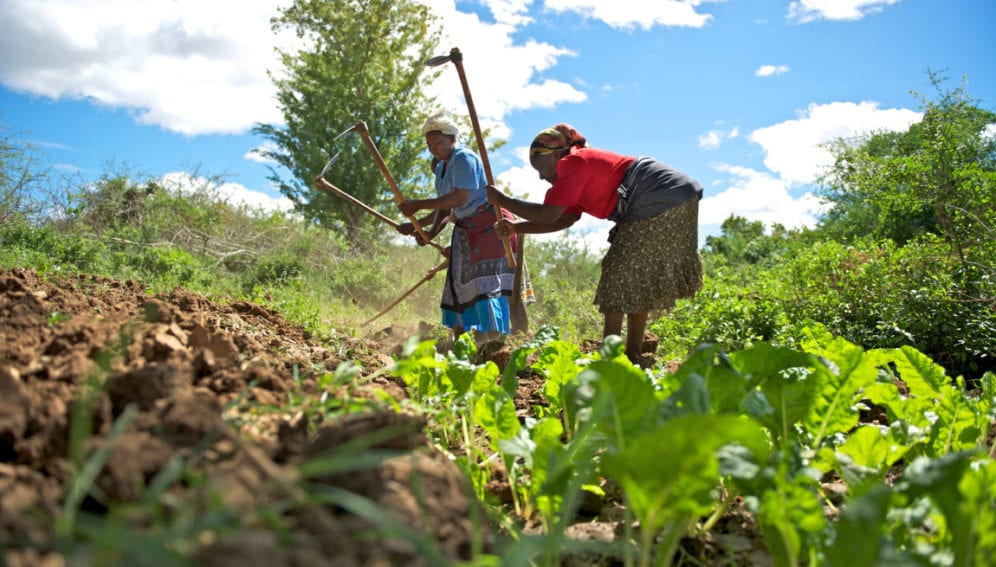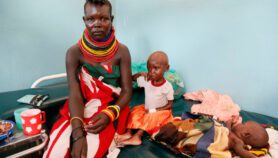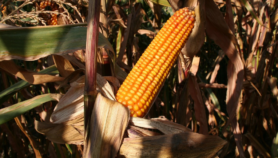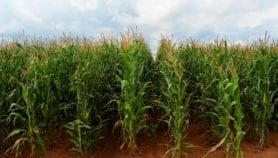Send to a friend
The details you provide on this page will not be used to send unsolicited email, and will not be sold to a 3rd party. See privacy policy.
Agriculture has an important role to play in providing employment to the youth in Africa.
As African leaders consider ways to improve livelihoods in 2014, which the African Union has declared as the Year of Agriculture and Food Security, they would be well placed to consider certain critical issues, including making small-scale farming the centre of transforming the continent’s agriculture.
“Agriculture won’t be attractive to young people unless it helps them to earn good money.”
T.S. Jayne, Miu Muyana and Lulama Ndibongo Traub
Lessons from Asia
Countries such as Japan and South Korea, which now rely on manufacturing and technology-driven service economies, were predominantly smallholder farming societies about 60 years ago.
But smallholder farmers in these countries increased their productivity and incomes through agricultural research breakthroughs, benefits from new technologies, extension services to farmers, good policies and public investments in infrastructure, thereby supporting demand for non-farm businesses and growth of employment opportunities off the farm.
Over time, most smallholder farmers eventually moved into these non-farm jobs.
For Africa to achieve a similar economic transformation, farming must become more productive and innovative, benefiting from science and research as in most parts of the world. Moreover, profitable farming requires access to more land.
Sixty per cent of Africa’s population is under the age of 25, and over 350 million young people will be entering the labour force between now and 2035. [1]
Even under the most optimistic projections, non-farm wage jobs in Sub-Saharan Africa will be able to absorb only half of the additional 350 million workers. This means that for at least the next several decades, farming will be called upon to provide gainful employment for at least a third of young Africans entering the labour force.
Threats to small-scale farming
Agriculture won’t be attractive to young people unless it helps them to earn good money.
The need for arable land keeps rising rapidly to accommodate profitable family farming. However, researchers from Michigan State University in the United States, the International Food Policy Research Institute and several African research organisations have concluded a set of studies finding that large-scale foreign investors have acquired 10 to 20 per cent of the region’s potentially available cropland. [2]
An even greater amount of land has been acquired by medium-scale domestic investors, many of whom are relatively wealthy urbanites. Moreover, 80 per cent of Africa’s remaining arable land is highly concentrated in just a few countries, many of which are fragile states. [3]. Roughly, a third of the region’s surplus land is currently under forest cover.
The conversion of forests to cropland would entail major global environmental costs.
Most governments’ existing strategies are officially oriented to promote agricultural growth and food security for the millions of their rural constituents who are small-scale farmers. However, most of these strategies assume unhindered access to land.
In spite of rhetorical support for small-scale farmers, there are increasing concerns that de facto agricultural and land policies have encouraged, and are continuing to encourage the transfer of land to medium- and large-scale interests without due recognition of how this is affecting land access and the viability of agriculture for Africa’s future generations.
Some commentators have concluded that because economic development is generally associated with the labour force’s transition from farming to non-farm practices, African leaders should expedite the process by giving up on the ‘romanticised’ vision of smallholder agriculture and favour commercialised large-scale agriculture. [4]
However, large-scale agriculture appears not to be the solution. For example, large-scale grain production is an extremely weak employer of labour — about one worker for every 100 hectares cultivated — and it pays little more than poverty wages.
Why smallholders need support
A sober assessment will acknowledge that even in 2014, most African countries are inhabited mainly by unskilled and semi-skilled rural people who are primarily engaged in farming. While they might wish to put down their hoes and walk into white collar office jobs tomorrow, their levels of education and skills will prevent this from happening quickly.
If increasingly populous rural communities were unable to access new land because of increased competition for it from local elites and outside interests, then it is likely that urban squalor and unemployment will be further intensified. Such a situation could risk overwhelming governments’ capacity to cope.
Africa’s transformation from a primarily semi-subsistence, small-scale agrarian economy to a more diversified and productive economy will still require unwavering support for relatively small-scale farmers. This way, small-scale farmers will be able to participate in and contribute to the region’s economic transition rather than be marginalised by it.
There is no doubt that migration from farm to non-farm sectors, and from rural to urban areas will provide the brightest prospects for transforming and modernising Africa’s economies. However, it will happen only as fast as educational advances and growth in the non-farm job opportunities will allow, which in turn depend on income growth among the millions of families still engaged in smallholder agriculture.
Government policies and public investment plans are decisive as these will determine the incentives and scope for investment by the private sector, and will largely determine whether the region’s economic transformation is a relatively smooth, robust and peaceful process or a painful and a protracted one.
“The availability of land for expansion of family farming — combined with the pattern of public investments and enabling policies — will determine whether a high proportion of young Africans are gainfully employed in agriculture or join the ranks of the jobless.”
T.S. Jayne, Miu Muyana and Lulama Ndibongo Traub
It is, therefore, in African leaders’ interests to invest in agricultural research and development to make small farms more productive and profitable and to protect the land rights of rural communities.
The availability of land for expansion of family farming — combined with the pattern of public investments and enabling policies — will determine whether a high proportion of young Africans are gainfully employed in agriculture or join the ranks of the jobless.
T.S. Jayne is professor in the Department of Agricultural, Food, and Resource Economics at Michigan State University (MSU); a visiting professor at the University of Pretoria, South Africa and a distinguished fellow of the African Association of Agricultural Economists. Jayne has mentored dozens of young African professionals and played a major role in building MSU’s partnerships with African research institutes. He has over 25 years of experience conducting research on agricultural and food security issues. He can be contacted at [email protected]
Milu Muyanga is assistant professor, Department of Agricultural, Food and Resource Economics at Michigan State University. He can be contacted at [email protected]
Lulama Ndibongo Traub is a lecturer at Stellenbosch University, South Africa. She can be contacted at [email protected]
This article has been produced by SciDev.Net's Sub-Saharan Africa desk.
References
[1] United Nations. Urban and rural population by age and sex, 1980–2015. (United Nations, 2013).
[2] Food Policy doi:10.1016/j.foodpol.2014.05.014 (2014)
[3] Food Policy doi doi 10.1016/j.foodpol.2014.05.002 (2014)
[4] World Development doi 10.1016/j.worlddev.2013.10.001 (2014)














